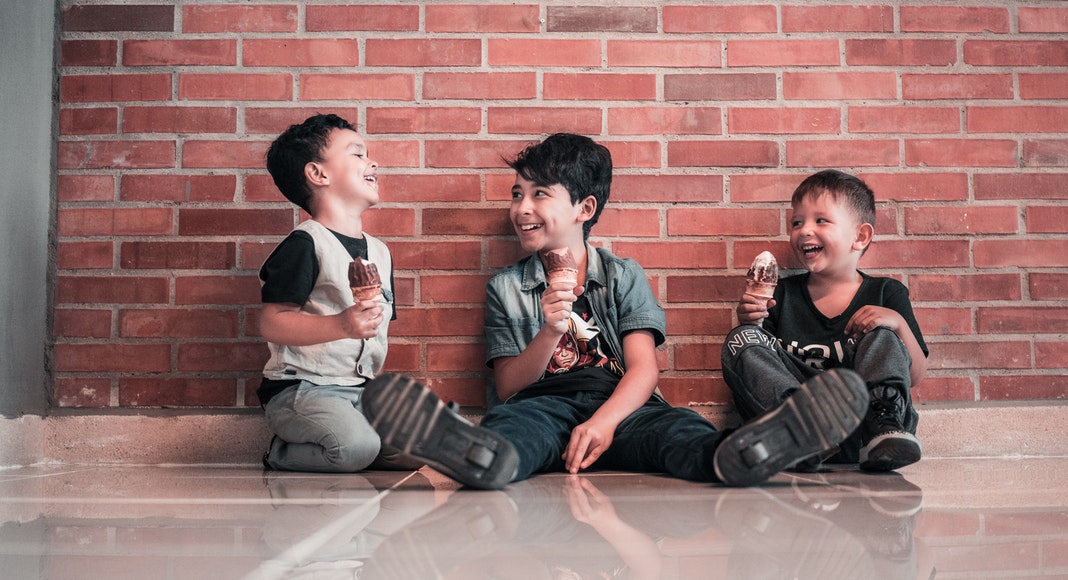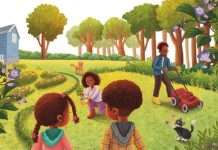 A few weeks ago, I heard a school superintendent on the radio refer to children living through the 2020 pandemic as a “lost generation.” The phrase “lost generation” cut through me like a knife. I burst into tears, allowing myself to feel all of the grief I had been holding in for weeks. I sobbed for my children and for their peers. For all the missed play dates, closed playgrounds, cancelled pancake breakfasts and theater camps. Memories of my own kindergarten experiences flashed through my mind and for a minute I couldn’t breath. I felt so devastated by my daughter’s loss.
A few weeks ago, I heard a school superintendent on the radio refer to children living through the 2020 pandemic as a “lost generation.” The phrase “lost generation” cut through me like a knife. I burst into tears, allowing myself to feel all of the grief I had been holding in for weeks. I sobbed for my children and for their peers. For all the missed play dates, closed playgrounds, cancelled pancake breakfasts and theater camps. Memories of my own kindergarten experiences flashed through my mind and for a minute I couldn’t breath. I felt so devastated by my daughter’s loss.
I allowed myself to grieve for a few more minutes, wiped my tears away and felt another emotion take hold. Determination. No. Isn’t going to happen. Our children were not and would never be a “lost generation.”
In April, I told friends and families that there was no way my 3-year-old could wear a mask. “He will keep it on his face for five minutes…maybe…then he’s going to take it off and shove it in someone else’s mouth.” Here we are in early August and Fritz is keeping his mask on all day at daycare without complaint.
When we realized school wouldn’t resume this year, my 5-year-old and I bawled in each other’s arms. She adored her teacher and classmates, and I felt tremendous pain for our loss. We cried together and then Hazel wiped her eyes, got back on her bike and spent the next hour laughing and playing with her little brother.
During the first week of June, I stood by a window at one of the childcare centers I work at, staring out the courtyard. It was the first day our centers were open since the program closed in mid-March. My team had spent the past few weeks worrying about how children would react to being back on site, to their teachers being in masks, to be encouraged not to share toys. I looked out the window and saw something as old as time. Laughing, running, giggling, yelling out to each other. Relief came over me in waves. Children will always be children.
Those early months of quarantine felt unreal to me. Our lives were so different. Fritz’s and Hazel’s childhoods, usually filled with birthday parties and museums, shrunk to the size of our family, our living room, and the half-mile radius around our house. Those early months were filled with sadness, grief, fear, anxiety, and frustration. For me. Fritz and Hazel did art projects, collected bugs, rode bikes. They complained that the play structures were off limits, then shrugged their shoulders and played hide and seek. They missed their friends. When I told them they had to stay six feet away from their aunt, they were sad. But not nearly as sad as their aunt. They developed new interests and skills. They learned how to ride bikes, roller skate and got even better at splashing in puddles.
They asked lots of questions. They asked, “How does COVID spread? When will it end? Why do we have to wear masks?” As soon as I started answering they would interrupt with, “How far can a kangaroo jump? How hot is the sun?” Coronavirus wasn’t their entire world. It was weird and different and confusing and scary but also, they wanted to know facts about animals, and fight over Legos, and know when they could expect their next cookie.
A small child can learn to speak a language better in a month than an adult can in a year. They are creative, unbiased, malleable, and flexible. Our children are more resilient than we will ever give them credit for. Children will always find joy, even when adults can’t. They live for the present moment. They play when there are no toys. They learn when there is no curriculum. They will be okay. They will survive this. They will make us proud. They will make smarter choices than we did. They will learn from our mistakes. They will heal the fractures in our world. They are not and will never be a “lost generation.”
We will not allow out children to be forgotten, dismissed, tossed aside, mourned for. Our children are seeking and finding joy everyday. They are learning to sew masks, they are giving air hugs and thumbs up. They are reading facial expressions through masks. Children discover joy when you help them make a robot out of a cardboard box. When you teach them how to look for tadpoles in a pond. We can grieve for all their missed play dates and music lessons. We can grieve for the shape their childhood would have taken. But we refuse to accept that they will be developmentally stunted. We refuse to accept that they are lost.
We do not yet know how this year will affect our children. We are all terrified about how the existing inequalities in our country will be laid bare as the public education system so many rely on is crippled. We are scared about how children without access to the internet and computers will access distance learning. We are nervous about how children who do have access to technology will respond to hours of Zoom. These are huge problems that demand creative solutions. We need to respond to the urgency of the moment by doing everything we can to ensure our children can return as quickly as possible to in person learning. In the meantime, we need to use the creativity and innovation that Americans are known for to ensure that our more vulnerable children are not left behind.
There are so many things that are unknowable but a few things that are knowable. We know that this school year will be hard, and so much harder for families that were already struggling. But we also know that our children will continue to amaze us. The things we assume will never work, may work. Our children will continue to blow us away with their resilience, with their utter determination. We should take our cues from them. Our children are unbreakable. They are not a lost generation, they are a generation with an unusual challenge. They will always surprise, delight and astound us.

















